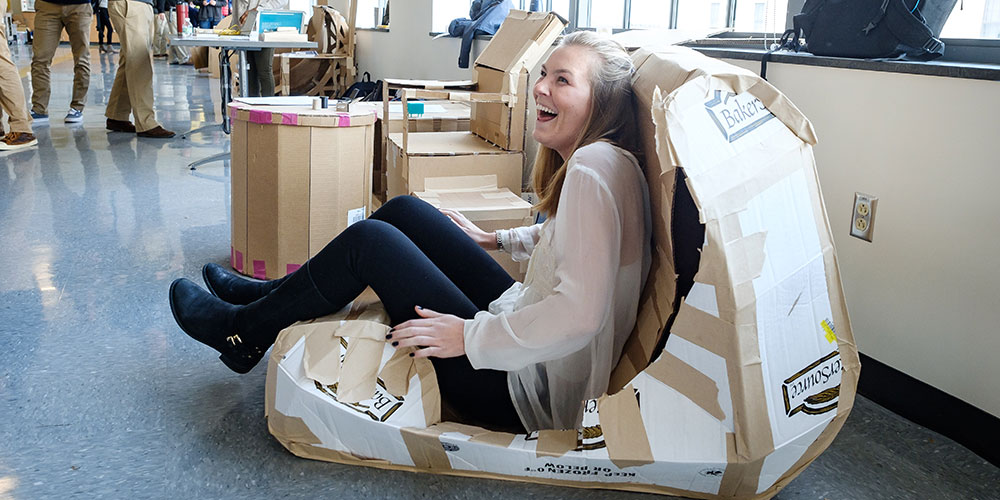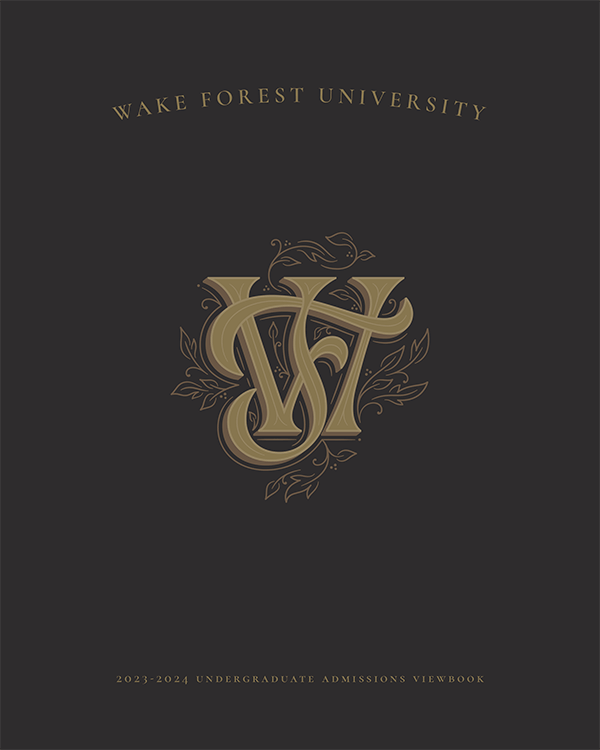Engineering

Bachelor of Science
Minor
Whether it’s prototyping or refining a product, creating a smarter financial investing model, designing more resilient infrastructure, inventing a piece of surgical equipment, or consulting on a sustainable energy project, WFU engineers deploy a vast skill set and are committed to inventing and innovating systems, processes, and materials. Infused with a healthy and productive liberal arts component, the Engineering program at Wake Forest transcends science and math to produce benefits for humanity.
Did You Know?
- In the Spring 2024 semester, 45% of Wake Forest Engineering majors were women. The national average. In 2021-22, the most recent year for which data are available, women represented 26% of Bachelor’s degree recipients in Engineering among research institutions according to the U.S. Department of Education.
- The program celebrated its first graduating class in 2021 and earned full national certification on time in August 2022.
- Senior capstone projects have involved: an algorithm that helps physicians treat appendiceal cancer; a sensor-activated system for tracheostomy patients; a prosthetic heart valve for pediatric patients; efficient housing solutions for Habitat for Humanity; and several other vital initiatives.
- Women represent the majority of tenured and tenure-tracked faculty. The national average is approximately 16%.
- Approximately 60% of Engineering graduates have held leadership positions in campus organizations.
Courses
Sample courses for students studying Engineering include:
- Introduction to Engineering Design
- Embedded Microcontroller Systems
- Computational Modeling in Engineering
- Capstone Design
- Digital Electronics
View official major requirements »
Practical Experience & Skills
Each Wake Forest Engineering Major receives a tailored program of study. This program is developed in consultation with faculty, a major advisor, and program leaders. Students may pursue a concentration in Biomedical, Civil & Environmental, Electrical, Materials & Chemical, or Mechanical Engineering.
Students develop impactful and relevant skills to:
- Solve complex problems
- Create systems-based efficiencies
- Create novel products and solutions
- Envision ways to conserve and optimize resources
- Collaborate with a team to reach defined goals and objectives
Other skills you will develop in this program are:
- Design process
- Programming
- Computer-aided design (CAD)
- 3D printing
- Teamwork
- Creativity
- Communication
- Attention to detail
- Prototyping
- Data analysis
- Systems modeling
- Presentation skills
- Leadership
Clubs & Organizations
Engineering students participate in the following clubs and organizations:
- STEM Academy
- Society of Women Engineers
- Robotics Club
Career Outcomes
Careers that often interest Engineering majors include:
- Biochemical or Biomedical Engineers
- Chemical Engineers
- Civil Engineers
- Electrical Engineers
- Energy
- Healthcare
- Industrial Engineers
- Manufacturing Engineers
- Materials Engineers
- Mechanical Engineers
- Nanosystems Engineers
- Nuclear Engineers
- Renewable Energy Engineers
- Robotics Engineers
Graduates in the inaugural cohort of 2021 are working as cloud solutions engineers; research and development engineers in pharmaceuticals; healthcare analysts; supply-chain engineers; and portfolio managers, among other careers.
Ready to take the next step?
Related Programs
Those who are interested in Engineering also consider the following programs:
Viewbook
At Wake Forest, we have lots of good stories to share, so we hope you’ll get to know us. Browse our Viewbook to learn more.


